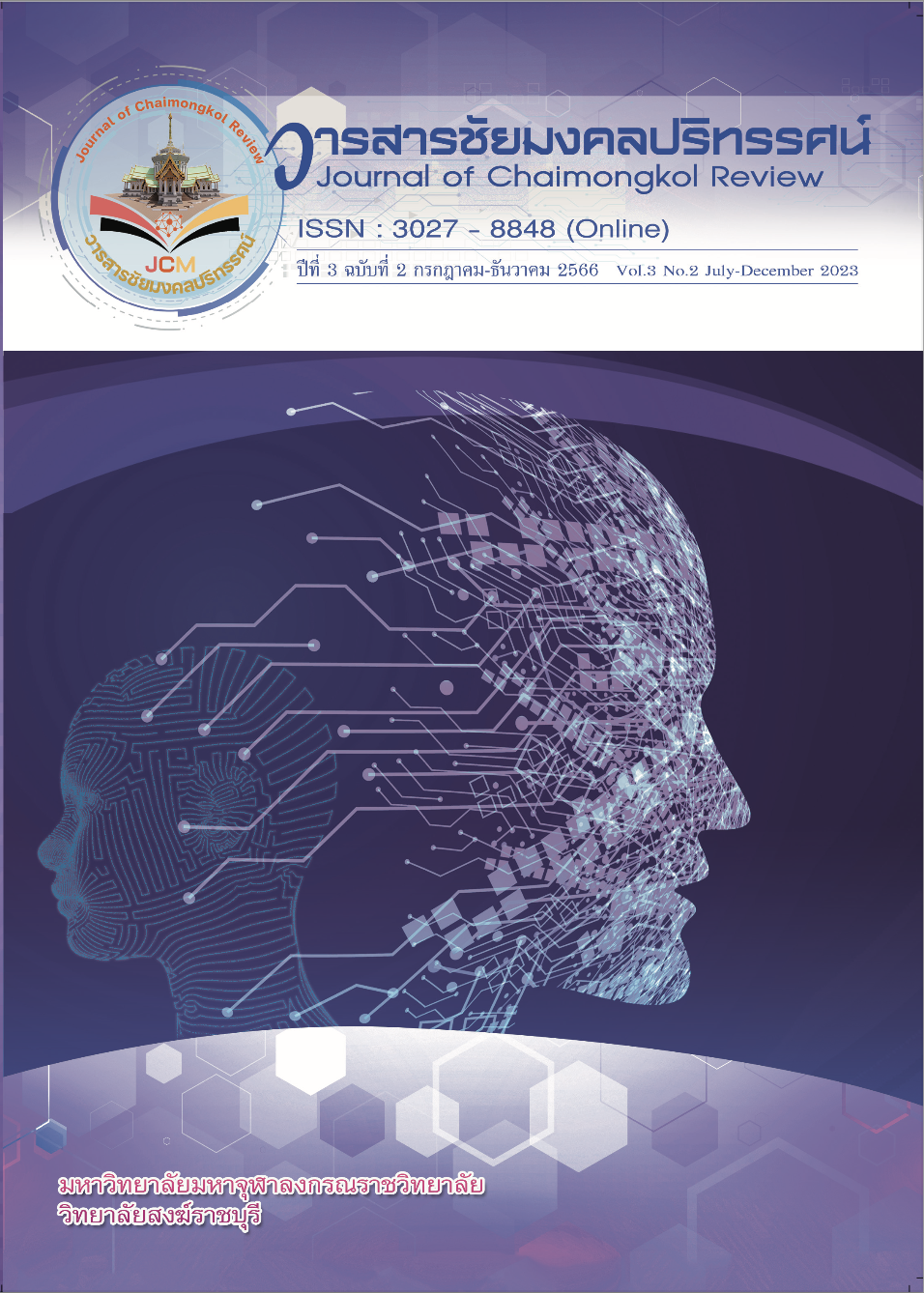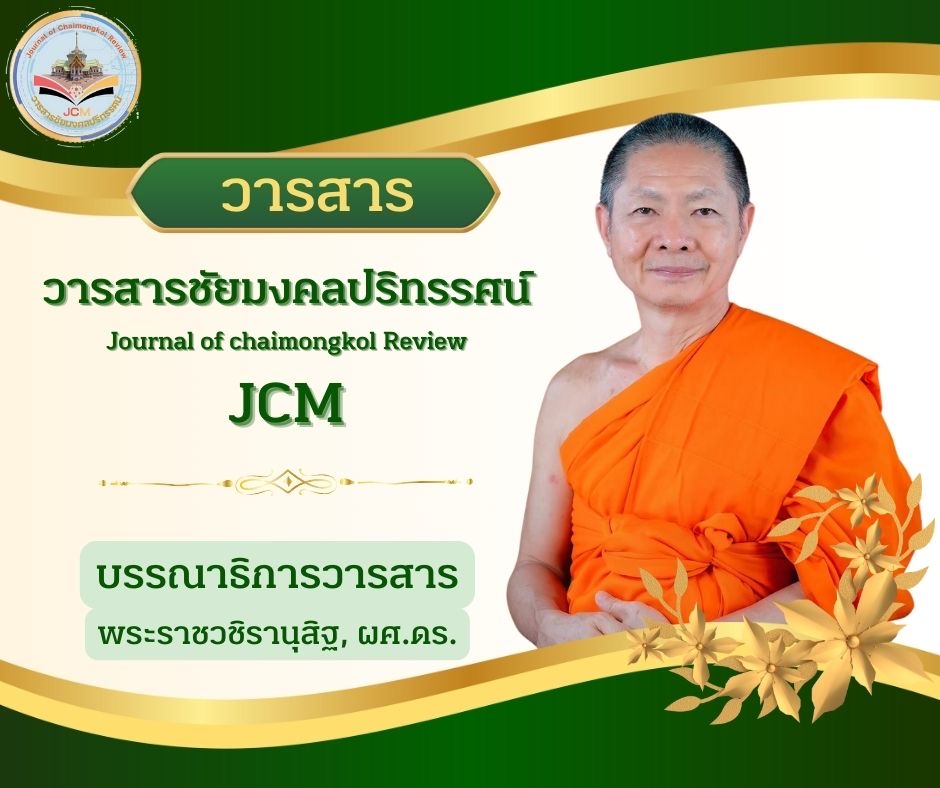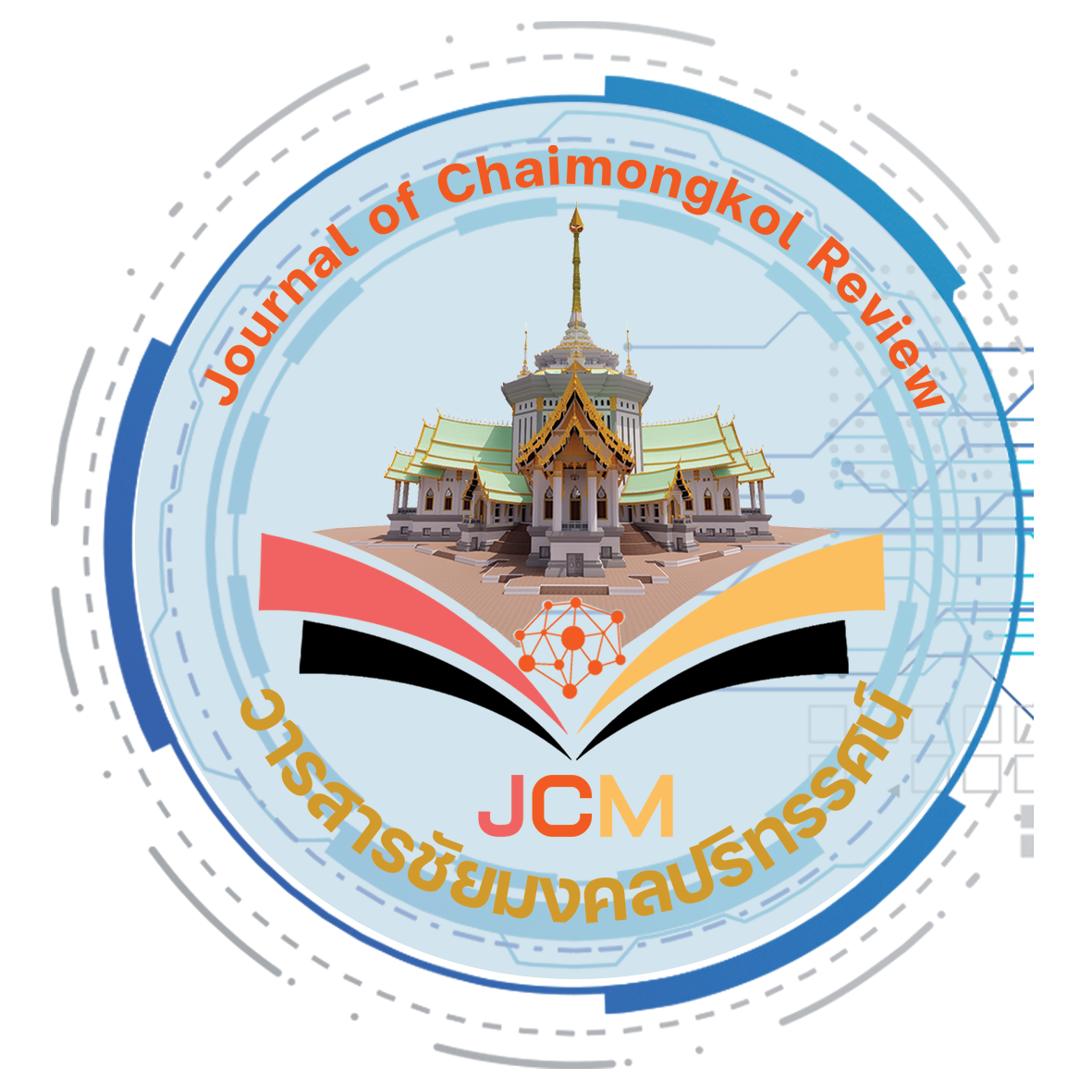LEADERSHIP ACCORDING TO THE PRINCIPLES OF SAPPURISADHAMMA 7 AND NEEDS IN ORGANIZATIONS
Keywords:
Leadership, Sappurisadhamma 7Abstract
Leaders in various organisations should study the principles of good leadership, both worldly and religious, as guidelines for how to behave in a suitable leadership manner, which is a good personality. have a good appearance and a person who is brilliant in principles and can plan various events well to keep up with the world and times that are constantly changing. Good leadership qualities should be present no matter how much time has changed. To provide guidelines and principles of practice to serve as an excellent example for people in the organisation, and when leaders have good command over people, It will affect the activities or work of the organisation that they perform. The planned objectives were achieved. By managing people well, you should know who can do what. What is the potential? To reach each person's mind for operations that achieve the highest objectives, Ensure that your organisation's work has no or minimal defects. The head or leader in various organisations has “Leadership” that should be studied to build a strong organisation. And have a good appearance. The nature of work is efficiency and effectiveness. To develop the organisation for the better, if organisational leaders integrate the principles of Buddhism, namely the 7 principles of Sappurisadhamma, into organisational management, the organisation will have higher quality, both moral, ethical, and free from corruption. There is transparency within the organisation as well.
References
กรมการศาสนา. (2514). พระไตรปิฎกภาษาไทย ฉบับหลวง. กรุงเทพฯ: โรงพิมพ์กรมการศาสนา.
ทองอินทร์ วงศ์โสธร. (2544). หลักและระบบบริหาร. พิมพ์ครั้งที่ 15. นนทบุรี: มหาวิทยาลัยสุโขทัย
ธรรมาธิราช.
นงลักษณ์ สุทธิวัฒนพันธ์. (2544). พัฒนาบุคลิกผู้นำและนักบริหาร (พิมพ์ครั้งที่ 2). กรุงเทพฯ: สุขภาพ.
นางอัมพร วงศ์โสภา. (2555). รูปแบบภาวะผู้นำเชิงพุทธตามหลักสัปปุริสธรรมขององค์กรปกครองส่วนท้องถิ่น: กรณีศึกษาความคิดเห็นของประชาชน อำเภอสันป่าตอง จังหวัดเชียงใหม่ (วิทยานิพนธ์ปริญญาพุทธศาสตรดุษฎีบัณฑิต). พระนครศรีอยุธยา: มหาวิทยาลัยมหาจุฬาลงกรณราชวิทยาลัย.
เนตรพัฌฌา ยาวิราช. (2546). ภาวะผู้นำและผู้นำ และผู้นำเชิงกลยุทธ์. กรุงเทพฯ: บริษัท เซ็นทรัลฟเวอร์เพรสจำกัด.
พระพรหมคุณาภรณ์ (ป.อ. ปยุตฺโต).(2546). ภาวะผู้นำ: ความสำคัญต่อการพัฒนาคน พัฒนาประเทศ. กรุงเทพฯ: ธรรมสภา.
มหาจุฬาลงกรณราชวิทยาลัย. (2535). พระไตรปิฎกภาษาบาลี ฉบับมหาจุฬาเตปิฏก 2500. กรุงเทพฯ: มหาจุฬาลงกรณราชวิทยาลัย.
มหาจุฬาลงกรณราชวิทยาลัย.(2539). พระไตรปิฎกภาษาไทย ฉบับมหาจุฬาลงกรณราชวิทยาลัย. กรุงเทพฯ: มหาจุฬาลงกรณราชวิทยาลัย
มหามกุฏราชวิทยาลัย. (2534). พระไตรปิฎกพร้อมอรรถกถา แปล ชุด 91 เล่ม. กรุงเทพฯ: มหามกุฏราชวิทยาลัย.
สมเด็จพระสังฆราช (เจริญ สุวฑฺฒโน).(2536). ธรรมศึกษา. กรุงเทพฯ: มหามกุฏราชวิทยาลัย.
สมเด็จพระอริยวงศาคตญาณ สมเด็จพระสังฆราช (อุฏฺฐายี). (2509). สัปปุริสธรรม. กรุงเทพฯ: หนังสืออนุสรณ์ เนื่องในโอกาสงานฌาปนกิจศพ นายชัย.
สมหวัง วิทยาปัญญานนท์ และคณะ. (2567). บริหารด้วยสัปปุริสธรรม. สืบค้น 10เมษายน 2567,จากhttp://www.budmgt.com-budman/bm๐๑/goodman.html
สามารถ อานนฺโท. (2548). ภาวะผู้นำตามหลักสัปปุริสธรรม (วิทยานิพนธ์ศาสนศาสตรมหาบัณฑิต). นครปฐม: มหาวิทยาลัยมหามงกุฏราชวิทยาลัย.
อุทัย หิรัญโต. (2520). ศิลปะศาสตร์ของนักบริหาร. กรุงเทพฯ: สำนักพิมพ์โอเดียนสโตร์.
เอกชัย กี่สุขพันธ์. (2530). การบริหารทักษะและการปฏิบัติ. กรุงเทพฯ: รุ่งเรืองการการพิมพ์.







